Urinary incontinence is the inability to hold your urine until you get to a toilet. More than 13 million people in the United States experience incontinence. It impacts both men and women, young and old. Incontinence is often temporary and is almost always a result from an underlying medical condition. Both women and men can become incontinent from strokes, multiple sclerosis and physical problems that occur with age.
The three main types of urinary incontinence are:
All types of urinary incontinence can be treated at any age and should not be cause for embarrassment.
Women experience incontinence two times more often than men. Urinary incontinence is common in women and often comes as a result of pregnancy, childbirth, menopause or stroke. Treatment for bladder control and prolapse are available for women of all ages. We offer evaluation, testing and a variety of treatment options including pelvic floor therapy based on your specific needs.
Clinical Interests:
Locations:
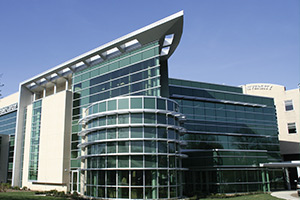
An outpatient department of Cabell Huntington Hospital
1400 Hal Greer Blvd.
Huntington, WV 25701
Phone: 304.399.6500
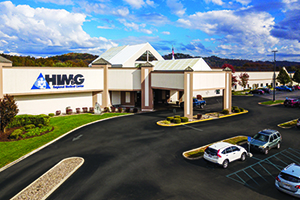
An outpatient department of St. Mary's Medical Center
3075 U.S. Route 60
A115
Huntington, WV 25705
Phone: 304.399.4650
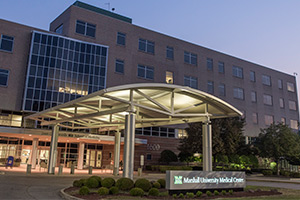
A provider-based department of Cabell Huntington Hospital
Marshall University Medical Center
1600 Medical Center Drive
Suite 4500 (4th Floor)
Huntington, WV 25701
Phone: 304.691.1400
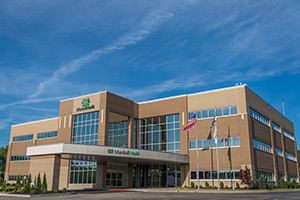
An outpatient department of Cabell Huntington Hospital
Marshall Health - Teays Valley
300 Corporate Center Drive
3rd Floor
Scott Depot, WV 25560
Phone: 304.691.1800
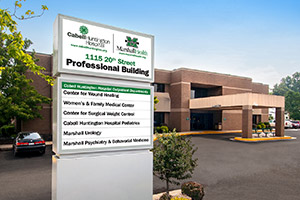
A provider-based department of Cabell Huntington Hospital
20th Street Professional Building
1115 20th Street
Suite 107
Huntington, WV 25703
Phone: 304.691.1900
Don’t let urinary incontinence hold you back. Contact us to schedule a consultation and explore treatment options designed to help you live with confidence and comfort.
Marshall OB/GYN
304.691.1400